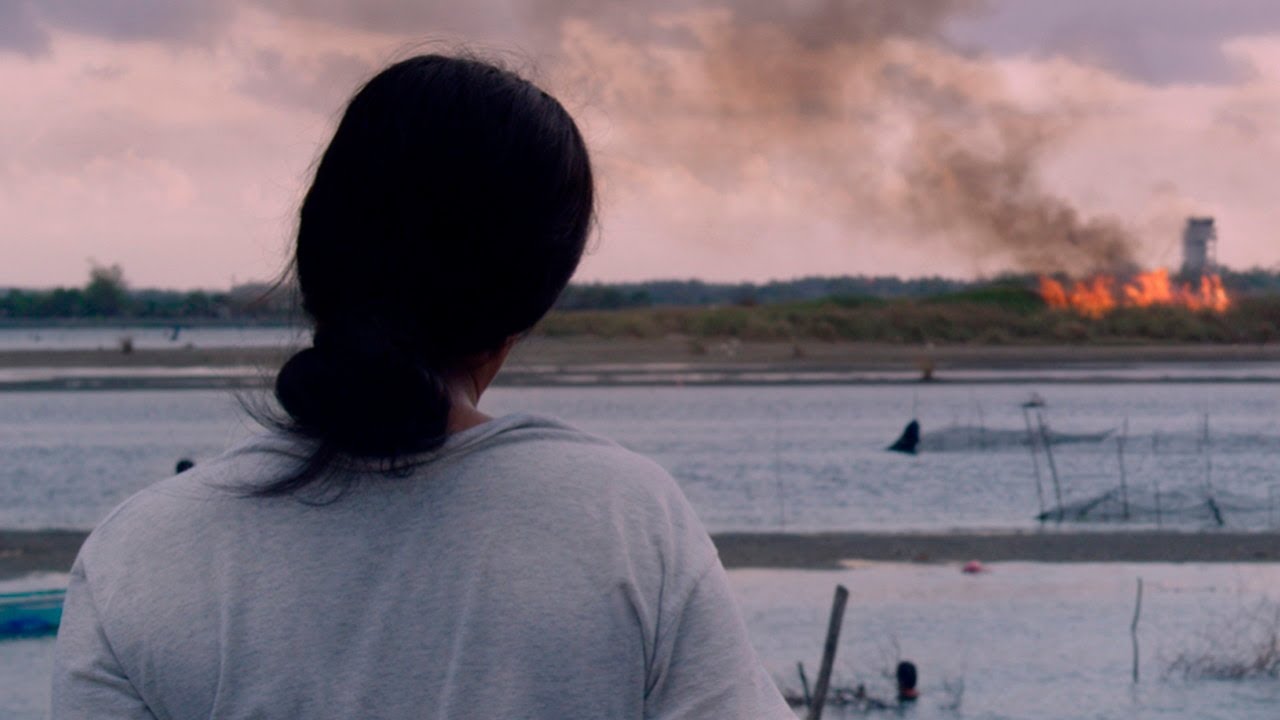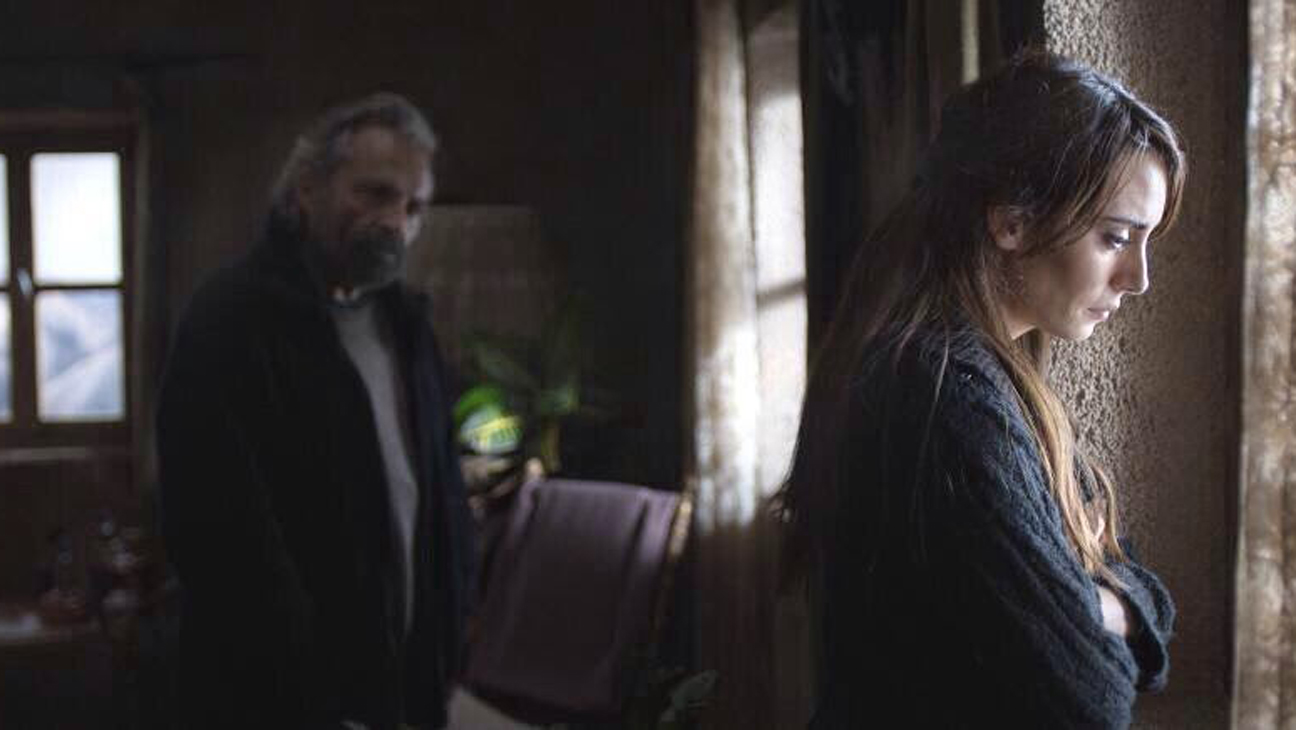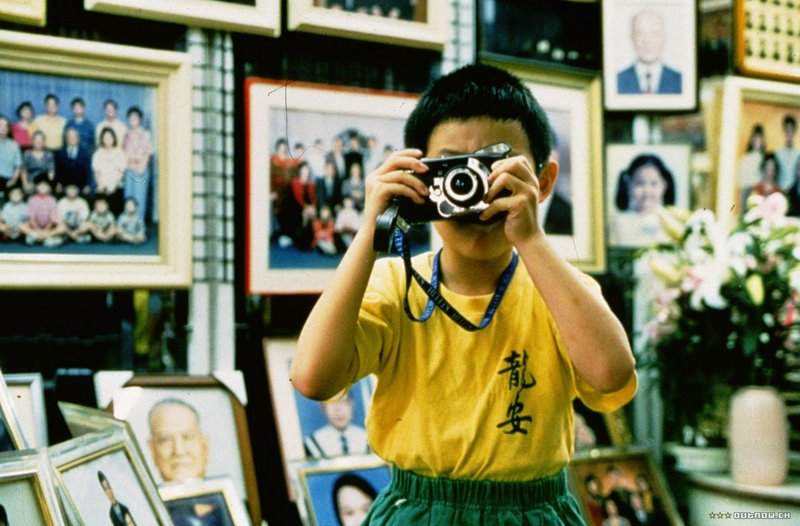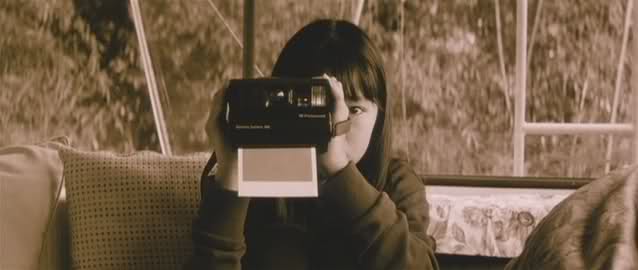5. Norte, the End of History (2013)
Running Time: 4h 11m

Lav Diaz is a Filipino director notorious for making films with criminally long runtimes, but yet still maintaining such high level of quality to the point where his filmography could quite frankly fill up more this entire list. Norte, the End of History, Diaz’s most popular work, and arguably his greatest, is a film exploring on extremely distinct and mature themes in its three acts, while still managing to maintain some sense of coherence in relation to the film as a whole.
The film’s “first part” is the traditional set-up. This segment not only introduces us to the world of the film and the characters that inhabit it, who they are, and what they think, but the bulk of the film’s thought-provoking philosophical discussions reside in this segment. What’s interesting about such interactions, is the fact that they not only complement the plot extremely well, directly reflecting later scenes, but they seem entirely relevant to the characters and what they would say realistically.
Never once did it feel like they were actors reading off a script, the conversations, no matter how politically charged, seemed like things actual humans would say, with their own personalities and personal beliefs rooted in their words, and it’s also interesting to note the root of the film’s “antagonist”’s “antagonisms” if you will.
Though the dialogue might come off as pretentious, the characters and the film are entirely self-aware of this, and it also plays into the theme of the film’s first segment, showing us the misguided nature of society’s intellectual youths, their one-sided mindset amidst a rocky political climate, their ambition for change in a world too gritty for their minds to comprehend. Essentially a society they wish to revolutionise, without thinking about the more realistic and human side of matters.
The film then moves on to explore religion, with an almost seamless transition. It informs of the absurdities of a higher power, its hypocrisies, its irrelevance in the grand scheme of things, but its importance nonetheless due to the order, no matter how skewed, it bring. This segment also, more importantly, shifts the film’s focus from theme to character, letting us grow alongside the film’s characters, showing us the contrast between the now entirely dissimilar characters and how they each cope with their individual situations.
The film treats each character with equal importance, knowing exactly when the story calls for them, and when it doesn’t. It shows us the weight of their burdens and how their personalities align with such burdens. It presents them with conflicts of all sorts, both internal and external and leaves them to deal with it, resulting in a grueling journey filled with empathy, with some of the greatest storytelling of Southeast Asian cinema, constantly bringing itself back to the segment’s theme and also making callbacks to the first segment, while still maintaining a rock solid focus amidst the apparent haphazard structure.
The final part of the film is pure chaos. It’s a culmination of the first two segments and what they strived to achieve, paired with the tail ends of the individual characters’ arcs. It renounces the idea of a perfect resolution, and instead goes for something more deeply profound, something gritty, something essentially towards the film.
It gave cinema one of the most demented forms of catharsis motivated not by genre or storytelling conventions, but by characters, by situations, by theme, no matter how surreal they might seem, and the ending both resolves everything the story sets out to achieve, and resolves nothing. A truly amazing film that stands out in a year already filled with amazing films.
4. Winter Sleep (2014)
Running Time: 3h 16m

Winter Sleep is a film that very much expands and improves on the themes and ideals put forth in the director, Nuri Bilge Ceylan’s earlier film, Once Upon a Time in Anatolia, and it is a film that does so in intense detail.
The film initially presents itself as a generic European Melodrama, centered around a dejected old man surrounded by acts of hypocrisy committed by those around him, including his loved ones and his resulting cynical nature. The man, Aydin, is undeniably the film’s protagonist, and the film is, from start to finish, a character study of this man.
What’s unique about Winter Sleep, is how effortlessly Ceylan twisted the film’s perspective, making us go from empathizing with Aydin to empathizing the people around him. The film does this while still maintaining its focus and structural integrity as a character study film. The film does so by slowly blurring the lines between good and bad through the various situations of the film, before these two extremes transform into a comparison less concrete- the comparison between morality and empathy.
Once Upon a Time in Anatolia saw this same contrast between morality and empathy, built upon the foundations of the film’s innate political message, Winter Sleep, however, has this theme but built upon the foundations of humanity, with the sub-message of youth vs old serving as a great complement rather than a detraction like the ironically sub-message in Once Upon a Time in Anatolia. Additionally, going for a more humanistic approach to delivering the message, makes it’s much easier for audiences to relate and be lost in the world of the film, as compared to delivering theme through anecdotes.
Winter Sleep is arguably the slowest film on this list, but nevertheless, it’s a film not to be missed. Nuri Bilge Ceylan is one of the most underrated directors working in the industry today, managing to bring forth such poetic meaning to his images that rival that of Tarkovsky’s. In fact, the wide exterior shots in Winter Sleep seem like something out of Tarkovsky’s Mirror, a bold statement to make, but a true one, nevertheless.
3. Yi Yi (2000)
Running Time: 2h 53m

A testament to the whole idea of a formalist narrative, essentially a term used to describe films with unconventional narrative structures, rejecting the norms of telling a story through a 3 act structure and whatnot. Yi Yi is a film that manages to maintain coherence despite that, being entirely character driven, concerning itself with the storylines of multiple characters in an extended Taiwanese family and showing audiences their contrasting outlooks on different situations in life such as love and loss, amidst other situations driving the film and challenging the family dynamics and their own personalities.
Yi Yi is perhaps the most notable film of the Taiwan Realists, a group of contemporary Taiwan filmmakers, netting the director Edward Yang the Best Director award at the Cannes film festival and cementing his name not only as a prominent figure of Taiwanese cinema, but world cinema in general, despite only having directed 8 feature films over a 20-year career.
Aside from Yi Yi, Yang is also known for A Brighter Summer Day, a large scale, 4-hour long epic with grand statements on youth and politics. Though it’s debatable which film is of a higher quality, Yi Yi was the one which truly stuck with a larger audience due to more personal themes, with three equally complex characters, at three distinct stages in life- childhood, adolescence and adulthood, all going through experiences which properly reflect the mood of each phase, it’s impossible not to relate to at least one of the characters, if not all 3.
Yang’s penchant for poetic imagery as seen in A Brighter Summer Day is given a contemporary twist in Yi Yi, the attention to detail in almost every shot, creating something that’s not only beautifully composed but painted with strong intent, conveying meaning through the littlest of details.
What’s great is that the film’s underlying meaning is extremely easy to grasp, and do not require much in depth analysis in order to understand what the film is attempting to convey, unlike other art films, which speaks for Yang’s understanding of audience and how to properly speak to us for 3 hours yet manage to give an impression lasting for almost 10 times that length, resulting in a film truly deserving of Best Director at Cannes. Yang’s untimely death in 2007 is truly a shame and an immense loss for world cinema.
2. Love Exposure (2008)
Running Time: 3h 57m

Love Exposure, despite being undoubtedly a 4-hour long art film, is as quickly paced as The Return of the King and as intellectual, if not more so than any other film on this list. Though it’s no denying that the film’s visuals do lack that certain aesthetic flair, it’s content more than make up for this.
The world Sono built in Love Exposure is an interesting blend of styles, combining multiple avant-garde techniques such as nonlinear narratives, intertwining narratives, surrealism and absurdism among many others, all of which are displayed to the fullest extent in the film’s insane runtime.
What might be lost stylistically in a lesser director’s hands is brought forth and accentuated to remarkable levels with Sono’s excellent vision, resulting in a film that’s not only profound in meaning, but excellently paced, which is no easy feat for an art film, let alone one this long.
The film’s story is presented in an almost biblical fashion, making extremely thought provoking statements about religion and the absurdity of it all, the idea of the megachurch mentality and the abuse that it brings to children, while still technically being in some way, a Christian film.
The characters that populate the world are extreme caricatures of religious figures with motivations that are beyond absurd, with their personalities exuding a blend of Dada-esque and mid-2000s Touhou quality, but despite all of these quirks, the characters never once felt anything more than real, we relate to otherwise oddities of humankind, which speaks wonders for Sono’s ability to craft characters.
Interpreting Love Exposure as a Christian film is in all honestly just one way to approach this grandiose behemoth of a film. This is a film with multiple underlying themes, other than religion. Themes such as adolescence, love, family, sex, which in fact, do not serve as complements to the film, but rather, all are part of the film’s fundamental groundwork.
Every theme taken individually, when put in context of the film forms an entirely different meaning of the film altogether. Where filmmakers struggle to balance more than one theme in terms of their story’s focus, we have Sion Sono effortlessly building his film on multiple foundations and letting the audience choose which foundation they want to base the film on, essentially rejecting the idea that theme is an afterthought and a plus in storytelling, daring to not only build his story on theme, but on themes.
This is a film that manages to exhaust literally every emotion the audience has- disgust, empathy, fear, pity, laughter, sadness, joy. It is truly a film that can do everything and did do everything.
1. Eureka (2000)
Running Time: 3h 38m

An amazing film which offers an in-depth and mature outlook on death and how it affects individuals. Eureka is truly an underrated cinematic achievement of Japanese cinema and a delightfully controversial one at that.
The film chronicles the relationships between 3 individuals and how they cope after being victims of a busjacking involving the deaths of multiple individuals right before their eyes. What’s unique is how the film presents its sequence of events to the audience, especially towards the beginning.
This is a film not concerned with incident, but consequence, not cause, but effect, it doesn’t show a majority of the incidents that propel its plot. Incidents like the busjacking, despite being arguably the biggest event in the film, is condensed to less than 20 minutes, with the audience only seeing its resolution. The 3 individuals’ family crumbling as a result of this fiasco is also left off-screen and told through subtext.
One might perceive this artistic choice to be a jarring flaw, however, knowing the intent of the film towards the end, it’s ultimately inconsequential. The film wants to tell its audience not to concern ourselves with such superficialities, because it is not a film that provides some generic 3 act, “hero’s journey” flow, if anything, it shows us the third act, the resolution, nothing else.
The way the 3 (technically 4) individuals cope with death is all so distinctly brilliant, all reflecting the roots of their own individual personalities, personalities hardened by strong subplots that complement the story extremely well and are resolved without leaving any loose ends, especially with regards to the main protagonist.
Additionally, what’s done extremely well in Eureka is the way the filmmakers subvert audience expectation at literally every beat. Everything feels so fresh and unpredictable, subplots become main plots, imagery become red herrings, and above it all, the film still manages to feel absolutely real and believable. The whole message of the film and how it manages to avoid cliches in general is fantastic, delivering a viewpoint that resides in a moral grey area, rejecting both right and wrong.
The film’s style is a great, though not perfect, blend of multiple directors’ visual styles, the overall melancholic feel is very reminiscent of Tarkovsky and Yang, with a bit of Antonioni. The first half is also very Ozu inspired, with the second half moving to a more counterculture New Hollywood style. The ending is none of these, it’s something completely original, at least in terms of its execution, almost rewarding the audience for sitting through its entirety with a ridiculously simple, yet gratifying resolution, once again subverting our expectations.
It’s alarming how little traction Eureka has with not only a global audience, but with cinephiles in general, despite its distinct quality. This is truly a film that deserves better. It deserves to be studied in film school as much as greats like Citizen Kane and Godfather, because it completely redefined what it means to tell a story through cinema.
Author Bio: Zach Wee is a film student from Singapore. Apart from being an aspiring filmmakerr, Zach has a strong passion for cinema and manages the website of his school’s film club, where he edits and also submits weekly film reviews.